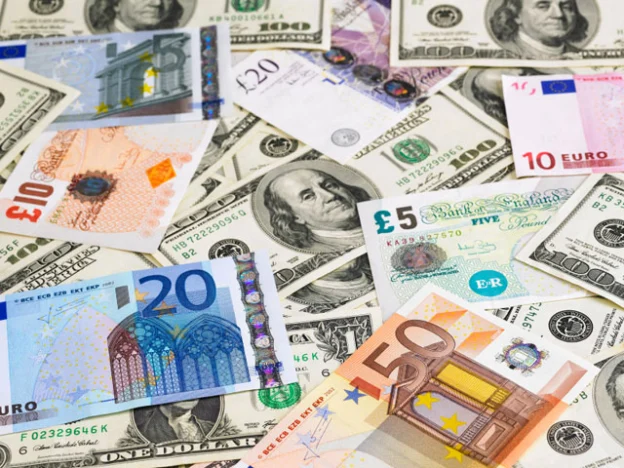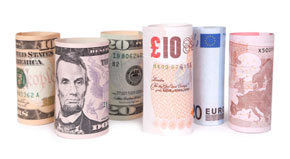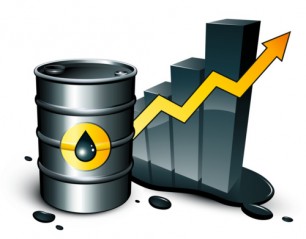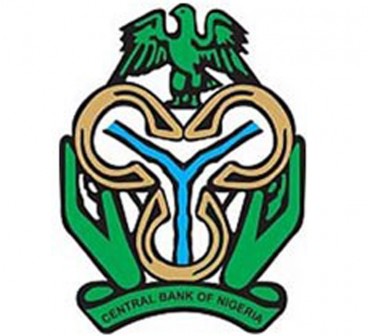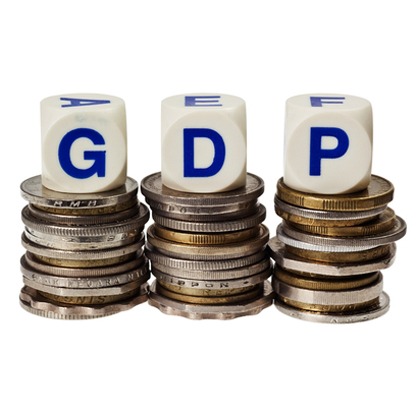If you are just joining the party, it will help to go through:
Now to the final part… Meet the Wazobia family.
The Wazobias love the good things of life. They are very exuberant – work a bit and party hard; some say they work to party :)! They have a lot in their backyard, but they don’t produce much. They have a lot of land and seeds, but they do not produce enough food to eat; they prefer to buy food and groceries from their neighbors. They have a well of black gold, which they fetch from and sell to other families. A lot of essential commodities can be extracted from this black gold, including the fuel the Wazobias use to generate electricity and power their vehicles and machines. The Wazobias have not bothered to extract these by themselves; they find it more convenient to sell the black gold to their neighbors, and then buy these essential fuel commodities from their neighbors when they need them. Every time the Wazobias produce something and sell to their neighbors (exports), they earn xZollers. Every time they buy something from their neighbors (imports), they spend xZollers. Doing business amongst themselves, they spend their local currency, the Waz.
This black gold was very expensive for most of the last decade. Consequently, the Wazobias had been swimming in xZollers. The Wazobias did not utilize these earnings to educate themselves or develop their capacity to: grow their own food, make their own tools, medically treat themselves, and produce their own fuel. Instead, the Wazobias bought even more items from their neighbors, including basic grocery items. Their neighbors loved them because of the amount of business they always brought. The exchange rate between the xZoller and the Waz remained stable because every time a Wazobia needed to obtain xZollers to make a purchase of goods and services from their neighbours, no matter how frivolous the purchase, the xZollers were made available from the Wazobias’ large (and seemingly never-emptying) store of xZollers.
About 18 months ago, the fortunes of the Wazobias changed – the price of their black gold dropped! It was not a small “don’t worry it is just a dip and will pick up soon” type of drop. It was an over 70% decline over about 12 months, with 50% of the decline occurring in less than 6 months. Remember that the Wazobias earned the bulk of their xZollers from this black gold. As they had not invested in being able to be self-sufficient, i.e. produce things by themselves for themselves, the Wazobias found themselves in an unenviable position of having to still go to their neighbors to buy almost everything they need. Now they needed a lot more xZollers than they could earn as they did not have much else to sell to their neighbors other than black gold. As a result, it has become more expensive for the Wazobias to obtain xZollers as it has become rather scarce.
In order to conserve the few xZollers now available, the elders of the Wazobia family decided to impose restrictions on who could come and buy xZollers at a preset exchange rate (official market). They pre-set the exchange rate so as to minimize the cost-increase impact (inflation) on the Wazobia family. There were other members of the Wazobia family (the Cartel) who had their own stores of xZollers obtained from various sources – some legal, some illegal. The Cartel decided to capitalise on the scarcity of xZollers to make a lucrative market of their own (parallel market). Some of the members of the Cartel were even able to access the official market; but instead of utilising the xZollers they obtained from there for the purpose they indicated, they placed them for sale in the parallel market. As we all know, the scarcer an item is, the more expensive it will be; this is called the law of demand and supply. Due to the restrictions placed by the elders, more and more Wazobias trooped to the Cartel to obtain xZollers to enable them keep up with the taste for their neighbor’s goods and services that they had grown accustomed to. Not surprisingly, the parallel rate is now much higher than the official rate.
The Wazobias’ story is the story of Nigeria: the black gold is our crude oil, the Waz is our Nigerian Naira, and we are currently an import-dependent nation. The elders of the Wazobia family represent the CBN, and the neighbors are Nigeria’s trade partners.
If this series has served its purpose, then these news articles should be easy to digest :):
- CBN explains why it is healthy when Nigerians cannot use their Naira debit cards abroad
- CBN says US$ restrictions will remain till reserves rise to US$200bn
Were you able to make sense of the news articles? Do you still have any questions about any aspect of the Nigerian FX market? Got any recommendations on how the Wazobias can get out of this quagmire? We look forward to reading from you: a comment in the box below or an email to comments@finomics101.com.
Happy new year all! “See” you in 2016 🙂

image courtesy happynewyears2016.net
